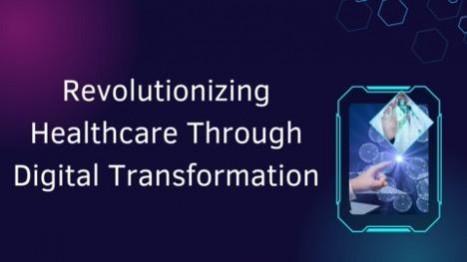
In a rapidly evolving digital landscape, healthcare organizations embrace innovation to optimize workflows and enhance service delivery. Reshma Vemula, a thought leader in healthcare management, explores the integration of digital solutions in modern healthcare systems. With expertise in workflow optimization and healthcare technology, she provides insights into how cutting-edge advancements reshape patient care and improve operational efficiency.
Transforming Healthcare Workflow with Digital Solutions
The complexity of healthcare workflows has long been a challenge for institutions worldwide. To streamline processes and improve efficiency, digital workflow models are now central to healthcare operations. Electronic Health Records (EHR) have become a foundation for data-driven healthcare, enabling seamless data sharing and interoperability between different departments. The adoption of service-oriented architectures ensures that medical records, patient history, and diagnostic reports are easily accessible across platforms, reducing administrative bottlenecks and enhancing clinical decision-making.
Advancements in Telemedicine and Remote Care
Telemedicine has emerged as a game-changer in healthcare delivery, providing patients with remote access to medical professionals. Embedded systems and wearable sensor technologies now allow continuous patient monitoring, ensuring timely interventions for chronic conditions. The integration of CMOS sensors in telemedicine platforms enables real-time data transmission, bridging the gap between patients and healthcare providers. This transformation has not only improved patient outcomes but also reduced the strain on healthcare infrastructure by minimizing unnecessary hospital visits.
Mobile Health Applications: Enhancing Patient Engagement
Mobile health applications have revolutionized the way patients interact with healthcare providers. These platforms incorporate AI-driven analytics to provide personalized health recommendations, monitor medication adherence, and facilitate secure communication between doctors and patients. By integrating with EHR systems, mobile applications enable proactive healthcare management, empowering individuals to take control of their health while ensuring medical professionals have access to real-time patient data.
The Evolution of Patient Portals and Self-Service Tools
Modern patient portals are revolutionizing healthcare by providing self-service features like appointment scheduling, test result access, and direct communication with providers. These platforms integrate with wearable devices, enabling real-time health tracking and automated alerts for potential risks. As digital adoption accelerates, patient portals are essential to a more interactive, patient-centered care model.
AI and Automation in Healthcare
AI is revolutionizing healthcare by streamlining operations and improving decision-making. AI-driven scheduling systems reduce appointment conflicts, optimizing provider availability and patient flow. Machine learning analyzes extensive patient data to detect patterns, enabling predictive analytics for early disease detection and personalized treatment plans. Additionally, automation simplifies administrative tasks like billing and medical documentation, reducing manual errors and freeing healthcare professionals to focus on direct patient care.
Big Data Analytics: Transforming Decision-Making
Big data analytics revolutionizes healthcare by identifying patterns, predicting disease outbreaks, and improving resource allocation. Predictive analytics facilitates early interventions, reducing hospital readmission rates and enhancing patient care. Real-time monitoring enables data-driven decisions, improving service efficiency.
Navigating Implementation Challenges
Despite the benefits, digital transformation requires overcoming challenges such as staff training, system integration, and data security. Effective change management, simulation-based training, and continuous learning enhance adoption. Strong cybersecurity measures are crucial to safeguarding patient data and regulatory compliance.
Measuring Success and Future Trends
Key performance indicators (KPIs) assess digital healthcare success, tracking reduced wait times, patient satisfaction, and clinical outcomes. Future trends like blockchain for secure data exchange, the Internet of Medical Things (IoMT), and AI-driven diagnostics will further shape the industry.
In conclusion, Reshma Vemula's comprehensive analysis of digital healthcare innovations highlights the transformative impact of technology on modern healthcare delivery. Integrating workflow automation, telemedicine, mobile applications, and AI-driven solutions is revolutionizing patient care, enhancing operational efficiency, and ensuring seamless coordination across healthcare ecosystems. As technology advances, healthcare organizations must embrace digital transformation to stay ahead of evolving challenges and deliver high-quality, patient-centric care.















